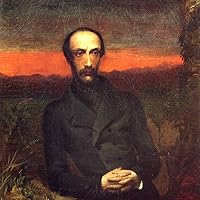Dmitry
https://www.goodreads.com/dmitry_sokolov


“but on Hegel, his "idealist" predecessor who was the first philosopher to answer Kant's challenge of writing a Universal History. For Hegel's understanding of the Mechanism that underlies the historical process is incomparably deeper than that of Marx or of any contemporary social scientist. For Hegel, the primary motor of human history is not modern natural science or the ever expanding horizon of desire that powers it, but rather a totally non-economic drive, the struggle for recognition. Hegel's Universal History complements the Mechanism we have just outlined, but gives us a broader understanding of man—"man as man"— that allows us to understand the discontinuities, the wars and sudden eruptions of irrationality out of the calm of economic development, that have characterized actual human history.”
― The End of History and the Last Man
― The End of History and the Last Man

“A Country is not a mere territory; the particular territory is only its foundation. The Country is the idea which rises upon that foundation; it is the sentiment of love, the sense of fellowship which binds together all the sons of that territory.”
―
―

“We stand at the gates of an important epoch, a time of ferment, when spirit moves forward in a leap, transcends its previous shape and takes on a new one..... A new phase of the spirit is preparing itself. Philosophy especially has to welcome its appearance and acknowledge it, while others, who oppose it impotently, cling the past.”
―
―

“Both Hegel and Marx believed that the evolution of human societies was not open-ended, but would end when mankind had achieved a form of society that satisfied its deepest and most fundamental longings. Both thinkers thus posited an "end of history": for Hegel this was the liberal state, while for Marx it was a communist society. This did not mean that the natural cycle of birth, life, and death would end, that important events would no longer happen, or that newspapers reporting them would cease to be published. It meant, rather, that there would be no further progress in the development of underlying principles and institutions, because all of the really big questions had been settled.”
―
―

“For Hegel, by contrast, liberal society is a reciprocal and equal agreement among citizens to mutually recognize each other”
― The End of History and the Last Man
― The End of History and the Last Man
Dmitry’s 2025 Year in Books
Take a look at Dmitry’s Year in Books, including some fun facts about their reading.
More friends…
Favorite Genres
Polls voted on by Dmitry
Lists liked by Dmitry


























